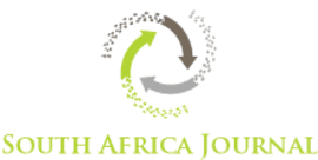Cape town: Deputy Minister for Women, Youth and Persons with Disabilities, Mmapaseka Steve Letsike, has called on women entrepreneurs across various sectors to leverage existing legal frameworks and government programmes aimed at strengthening their businesses. She emphasized the importance of utilizing the 40% public procurement target to boost their economic involvement.
According to South African Government News Agency, Letsike made these remarks during the Women-Owned Business Empowerment series held in Richards Bay. She highlighted the necessity for commitments to women’s economic participation to be ‘tracked and enforced,’ stressing that empowerment should be a shared responsibility rather than an act of goodwill.
Letsike pointed out that one of the major hurdles faced by women entrepreneurs is access to finance. She noted that women often lack collateral, are deemed less ‘credit-worthy’ by traditional financial institutions, and experience discrimination in capital allocation. To address these challenges, the government has initiated measures such as the R3.2 billion Women Empowerment Fund and procurement reforms directing at least 40% of public sector procurement to women-owned businesses.
Despite these efforts, Letsike acknowledged that implementation gaps persist and bureaucracy continues to hinder the entrepreneurs that these initiatives aim to support. She called for policy commitments to translate into tangible opportunities, emphasizing the need to improve access to markets for women-owned businesses, which often remain confined to the informal sector.
The Deputy Minister also discussed the Women’s Economic Assembly, which aims to integrate women-owned enterprises into value chains across sectors such as mining, agriculture, automotive, retail, and ICT. She reiterated the necessity for these commitments to be tracked and enforced.
In addressing the digital divide, Letsike underscored the role of the Fourth Industrial Revolution in transforming business landscapes, while cautioning that women may be left behind due to limited access to digital resources. She highlighted initiatives like SA Connect and the Smart Africa Youth Chapter as vital in prioritizing digital inclusion for women, particularly in rural and township areas.
Letsike further emphasized the importance of tailored empowerment strategies that consider the diverse challenges faced by women, including higher unemployment rates among young women, double discrimination for women with disabilities, geographic isolation for rural women, and legal and social barriers for migrant women. She asserted that an effective empowerment strategy must be intersectional and responsive to the varied realities of women.

